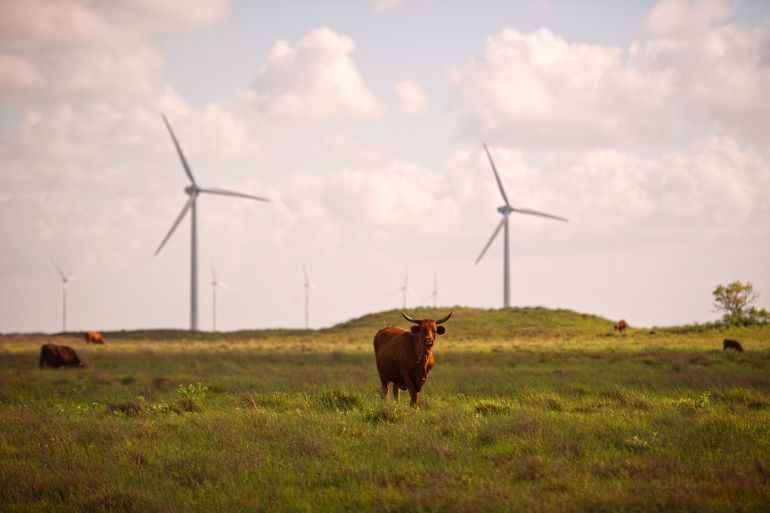Texas wind power is failing amid a scorching US heat wave
Depressed wind power during heat waves isn’t a new phenomenon, and the state’s wind turbines are now operating at 8 percent of output.

Wind power — a key source of electricity in Texas — is being sidelined just when the Lone Star State needs it most, with turbines generating less than a 10th of what they’re capable of.
A scorching heat wave is pushing the Texas grid to the brink. Power demand is surging as people crank up air conditioners. But meanwhile, wind speeds have fallen to extremely low levels, and that means the state’s fleet of turbines is at just 8% of their potential output.
Keep reading
list of 4 items‘Horrific tragedy’: At least 50 people found dead in Texas truck
Tesla’s Texas, Berlin factories ‘losing billions of dollars’
Strong winds and high heat expected to fan New Mexico wildfire
Texas may be America’s oil and gas hub, but it’s also long been the country’s biggest wind-power state. The renewable energy source has become highly politicized: Some critics blamed frozen wind turbines for the Texas grid’s failure during a deadly winter storm last year, even though disruptions at plants powered by natural gas were the bigger culprit.
The current lows for Texas turbines also point to a broader contradiction facing the world as it transitions to cleaner energy sources. While countries across the globe are generating more electricity from intermittent wind and solar sources, large-scale, battery storage is still in its ascendancy. That leaves major grids more fragile and vulnerable to shock.
Depressed wind power during heat waves isn’t a new phenomenon. Powerful high-pressure systems that cause intense heat often squelch wind production — just when more power is needed to meet higher electricity demand. The mass of air overhead stifles wind near the surface, until the mass moves elsewhere.
Right now, one of those high-pressure systems is sitting directly over the Lone Star State.
There is hope that wind power will be much more robust Tuesday, when the weather pattern is expected to shift toward New Mexico.
“High pressure is sinking air, so right under the ridge — like today in Texas — air is sinking straight down to the ground,” said Matt Rogers, president of the Commodity Weather Group, a commercial forecaster that looks at energy and agriculture.
–With assistance from David R. Baker and Mark Chediak.